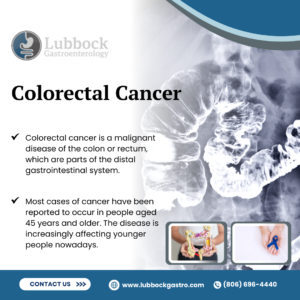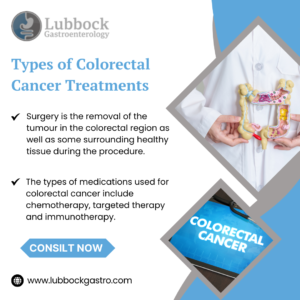Colorectal Cancer in 2024

Colorectal Cancer in 2024
Colorectal cancer is a malignant disease of the colon or rectum, which are parts of the distal gastrointestinal system. This cancer is preventable by screening and treatable when detected early, unlike most other cancers.
Most cases of cancer have been reported to occur in people aged 45 years and older. The disease is increasingly affecting younger people nowadays.
Colorectal cancer in 2024 remains one of the most common cancers globally. According to The American Cancer Society, more than 50,000 people will die from colorectal cancer in the U.S. alone in 2024.
The society also estimates that 152,810 people in the country will be diagnosed with colorectal cancer this year, and 53,010 will die from the disease. The number of people diagnosed, although still significant, has steadily declined since the mid-1980s due to increased screening and changing lifestyles.
How common is colorectal cancer?
Colorectal cancer is the fourth most common cancer and the second deadliest cancer in the United States. It’s also one of the few cancers that is preventable and treatable at an early stage.
According to research, the rate of people being diagnosed with colon or rectal cancer each year has dropped overall since the mid-1980s, mostly because more people are getting screened and modifying their lifestyle-related risk factors.
Cancer is the third-leading cause of cancer-related deaths in men and the fourth-leading cause in women, but it’s the second most common cause of cancer deaths when both the numbers for men and women are combined.
The age range of diagnosis among men and women is 61-69. The American Cancer Society’s estimates for the number of colon cancers in the United States for 2024 include:
About 106,590 new cases of colon cancer (54,210 men and 52,380 women)
About 46,220 new cases of rectal cancer (27,330 men and 18,890 women).
In the United States, there are over 1.5 million survivors of colorectal cancer.
Risk of Colon Cancer by Age
Usually, the risk of colon cancer increases as people get older. This cancer can occur in young adults and teenagers. There’s an alarming rise in the number of younger populations affected by colorectal cancer, but the majority of colorectal cancers occur in people older than 50.
The average age at the time of diagnosis of colon cancer for men is 66, and for women is 69. For rectal cancer, it is 62 for men and 63 for women. Individuals aged 65 and older diagnosed with colorectal cancer face unique challenges, especially with cancer.
The incidence rate for colon cancer declined by about 3.6% per year in adults who are 55 and older, according to recent statistics. The downward trend mostly encompasses older adults. In populations younger than 55 years of age, cancer rates have been increasing by 1% to 2% each year for a while now.
Colorectal Cancer Is Rising In Young Adults

Colorectal Cancer Is Rising In Young Adults
The young adult population group is steadily experiencing an increase in cancer cases. Currently, cancer is the deadliest cancer among young men and the second deadliest among young women.
Recently, the incidence rate of colorectal cancer has increased by 2% per year in adults younger than 55. About 20% of all colorectal diagnoses made recently are in people under age 55.
The reason for this rise in younger adults is not yet known. In the U.S. about 10% of colorectal cancer cases are diagnosed in people below the age of 50. Those numbers are rising about one to two percent each year, and research is still ongoing on the reason behind this rise.
Colorectal Cancer and Ethnicity
A popular risk factor for colorectal cancer is ethnicity. Colorectal cancer impacts some ethnic groups more than others. African Americans have the second-highest incidence rates of colorectal cancer in the U.S., as well as mortality rates.
They’re also 35% more likely to die from colorectal cancer and 15% more likely to develop it than non-Hispanic whites.
Newly diagnosed with colorectal cancer?
If you are newly diagnosed with colon cancer, there are important things about cancer that you should know about.
Understand the Diagnosis and Know the Extent of Colorectal Cancer
Colon cancer is a malignant disease of the distal part of the gastrointestinal tract. If you’re newly diagnosed, you should contact your healthcare provider to learn more about the condition and better understand your diagnosis.
Once you understand your diagnosis, it’s also essential to know the extent of your condition. This cancer is staged from 0 to IV, representing its extent or severity. Stage 0 is non-invasive and localized, while stage IV indicates cancer has spread beyond the colon or rectum.
A specialist helps you stage the cancer.
Understanding Colorectal Cancer Treatment
There are a series of treatment options available for cancer, ranging from surgery to chemotherapy and many others. It’s important to know the treatment options available before making a decision.
The specific treatment for colorectal cancer depends on factors such as the cancer stage. Don’t delay starting treatment for any reason whatsoever.
Choosing the Right Colorectal Cancer Care Team
Once you know the important bits about your diagnosis and the available treatment options, you need to consult a specialist to start your treatment immediately. Opt for centres that provide you with access to cancer specialists who are up-to-date on the best ways to treat colon or rectal cancer.
A colorectal cancer team comprises a variety of healthcare providers ranging from a physician to assistants and nurses, with the team headed by an oncologist. Together, the team comes up with the best treatment plan and timing of the treatments for your particular situation.
Get screened at 45
Due to the rise in the incidence of cancer in people less than 50 years old, screening is recommended for individuals who are 45 years of age and at risk for the condition. Cancer screening tests include:
Colonoscopy
During the procedure, a longer, thin, flexible, lighted tube to check for polyps or cancerous growth inside the rectum and the entire colon. During the test, the doctor can find and remove most polyps and some cancerous growths. A colonoscopy is used as a screening tool as well as a follow-up test if anything unusual is found during one of the other screening tests.
CT Colonography
Computed tomography (CT) colonography uses X-rays to produce images of the entire colon. The images are displayed on a computer screen for the specialist to analyze.
Flexible Sigmoidoscopy
This is similar to the colonoscopy. A short, thin, flexible tube is inserted into the rectum to view insider the rectum. The doctor checks for polyps or cancerous growth inside the rectum and lower third of the colon.
Stool Tests
There are different stool tests used for colorectal cancer screening. There’s the guaiac-based fecal occult blood test (gFOBT). It uses a chemical guaiac to detect blood in the stool. It is done at home using a test kit provided by a healthcare provider.
You use a stick to collect a small amount of stool and then take the test kit to the lab, where the stool sample will be checked for the presence of blood.
There’s also the fecal immunochemical test (FIT) that uses antibodies to detect blood in the stool. Lastly is the stool DNA test that combines the FIT with a test that detects modified DNA in the stool. An entire bowel movement is collected and taken to a lab for assessment.
Types of Colorectal Cancer Treatments

Types of Colorectal Cancer Treatments
The different types of colorectal cancer treatment options include:
Surgery
Surgery is the removal of the tumour in the colorectal region as well as some surrounding healthy tissue during the procedure. Surgical resection is the most common survival treatment for colorectal cancer.
Besides surgical resection, other surgical treatment options for cancer include laparoscopic colorectal surgery, robotic surgery, and colostomy.
Therapies Using Medication
The treatment plan involves using medications to destroy cancer cells in the colorectal region. The types of medications used for colorectal cancer include chemotherapy, targeted therapy and immunotherapy.
All of these options are different. While chemotherapy involves the use of FDA-approved drugs to destroy cancer cells, targeted therapy involves the destruction of the specific genes, proteins, or the tissue environment that contributes to cancer growth and survival.
Immunotherapy works by improving your immune system’s ability to attack cancer cells.
Radiation Therapy
Radiation therapy for colorectal cancer involves the use of high-energy X-rays to destroy cancer cells. A radiation therapy regimen usually consists of a specific number of treatments given over a specific period.
Stereotactic radiation therapy, external-beam radiation therapy and intraoperative radiation therapy are some of the common radiation therapies used for colorectal cancer.
FAQ
Is colorectal cancer preventable with screening?
Yes, this cancer is preventable through early and consistent screening.
Do I need to get screened for colorectal cancer?
Yes, you need to get screened for colorectal cancer, especially if you’re about 45-75 years of age or you have a family history of the condition.
When should I get screened?
Experts recommend getting started with screening at the age of 45 years.
What is a fact about colorectal cancer?
Colorectal cancer is one of the most common types of cancer that can be prevented by screening and treated if detected early.
What are the survival statistics for colorectal cancer?
The colon cancer survival rate is impressively high. The 5-year relative survival rate for cancer in the United States is 65%. You should also know that survival rates for cancer vary based on several factors.
Can you live ten years with colon cancer?
Yes, you can live ten years or longer with colon cancer with appropriate treatment and management.
Colorectal Cancer Screening and Treatment at Lubbock Gastroenterology in Lubbock, TX
Colorectal cancer is best detected early to increase your chance of a successful treatment outcome.
If you live in Lubbock or anywhere in West Texas, and you have a family history of colorectal cancer or you’re 45 years and above, you should schedule a colorectal cancer screening appointment with us at Lubbock Gastroenterology in Lubbock, TX.
Book an appointment with Dr. Sameer Islam to get expert screening and treatment at Lubbock Gastroenterology.
